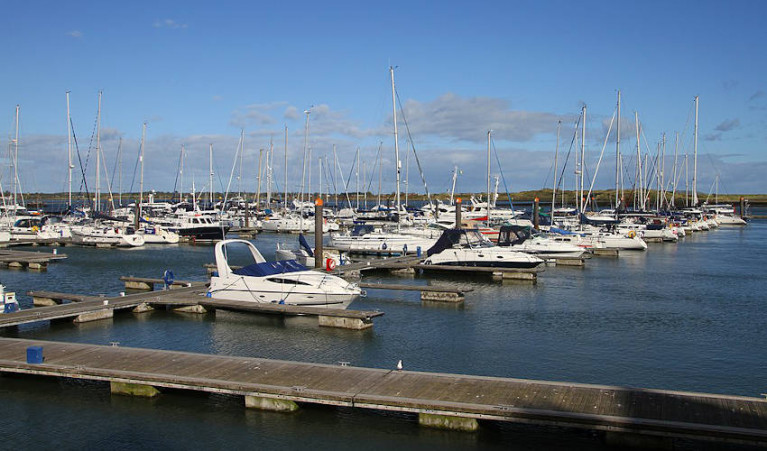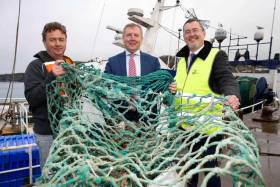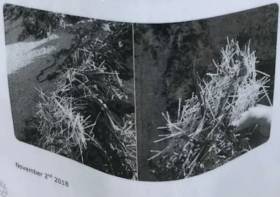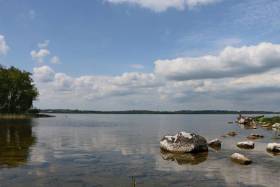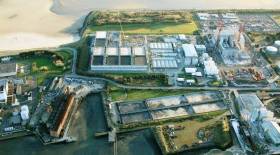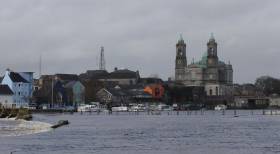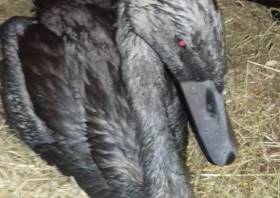Displaying items by tag: pollution
Irish Water Fined Over Sewage Incident At Malahide Marina
A court has heard that Malahide Marina was flooded with enough sewage to fill more than two Olympic-size swimming pools in a pollution incident last year, as TheJournal.ie reports.
Irish Water pleaded guilty to offences under the Waste Water Discharge (Authorisation) Regulations 2007 following the malfunction of a treatment plant in the north Co Dublin town on 28 April 2018.
The company was fined €1,500 and ordered to pay €850 for expenses and €5,000 towards legal costs.
Brendan Kissane, inspector for the Environmental Protection Agency (EPA) which brought the case, told the court that the incident occurred after one of the plant’s three pumps had been removed, and the other two failed four days later on a day when the facility was not staffed full-time.
This resulted in raw sewage overflowing from tanks in the facility into the nearby marina.
It was also heard that the pump failure was not detected until the day after the pollution incident, a Sunday, and the pollution continued until a temporary pump was installed the following day.
TheJournal.ie has much more on the story HERE.
Marine Minister Thanks Trawler Owners For Playing Their Part In Ireland’s Clean Oceans Initiative
Marine Minister Michael Creed has welcomed the increase in trawlers and other fishing boats now signed up to Ireland’s Clean Oceans Initiative.
As previously reported on Afloat.ie, the initiative involves fishermen storing and returning to land marine plastics that come up in their nets daily as they fish, thereby removing this pollution from the marine environment.
The minister launched the Clean Oceans Initiative in January this year at Union Hall, setting a very ambitious target for the participation of the entire Irish trawl fishing fleet in the scheme by 31 December.
To date, 168 trawlers and 56 other fishing boats have signed up with 12 ports registered and involved in the initiative.
“It is heartening to see the numbers that have come on board and that we are now at 70% participation. I would like to thank every boat owner who has joined up,” said the minister.
“We need to get every single trawler on-board for this. This is good for the fishing industry and good for the environment.”
He added: “I’m delighted that the fisheries producer organisations endorsed this initiative and are encouraging their members to sign up and get involved.”
Protecting our oceans is one of 17 Global Goals that make up the 2030 Agenda for Sustainable Development.
By the end of the third quarter this year, approximately 70 tonnes of marine plastic waste had been collected from 12 of Ireland’s busiest fishing ports and 25.5 tonnes of used fishing nets have been collected for recycling by Bord Iascaigh Mhara’s (BIM) mobile shredder, the ‘Green Machine’.
Minister Creed expressed his thanks to BIM and to those leading the early brigade: “I must commend all those currently involved in the Clean Ocean’s Initiative being run by BIM and the longstanding commitment many in the fishing industry have to bringing ashore plastic waste from the sea.
“I look forward to seeing 100% participation by our trawling fleet by the end of this year.”
Applicants are advised to sign up on the BIM website or by contacting BIM directly at 01 214 4100.
Plastic fibres released during construction on the Dun Laoghaire baths site last year have again washed up on nearby beaches, as The Irish Times reports.
The plastic shards were washed into the water during a concrete pour at the development last November, prompting a safety advisory for swimmers and beach-goers between the West Pier and the Forty Foot.
A clean-up operation was launched at the time which recovered 50kg of the 70kg of plastic strands released.
Now a volunteer clean-up group says some of the unrecovered plastic reappeared at Sandycove on Thursday ahead of Storm Lorenzo.
The Irish Times has more on the story HERE.
IFI Secures Three Prosecutions For Harmful Discharges In Lough Sheelin & River Camlin Catchments
Inland Fisheries Ireland (IFI) has prosecuted three businesses and landowners in the Lough Sheelin and River Camlin catchments between May and September 2019, for the discharge of harmful substances to nearby watercourses.
In June, Kiernan Milling of Granard, Co Longford was convicted in Longford District Court for the discharge of effluent to the River Camlin catchment.
Judge Hughes ordered the payment of €2,441.65 in fines and costs, for breaches under the 1959 Fisheries Consolidation Act.
On 23 July, in Virginia District Court, Mr Patrick Kiernan was convicted and ordered to pay €2,900 in fines and costs, for the discharge of effluent to the Kildorragh River in the Lough Sheelin catchment.
A third conviction was secured by IFI in Virginia District Court in September 2019.
Mr John Lynch, Mountnugent, Co Cavan was ordered to pay €2,500 in fines and costs for allowing the discharge of deleterious matter into the Schoolhouse River, also part of the Lough Sheelin catchment.
In a fourth case in May 2019 at Longford District Court, Judge Hughes disposed of a prosecution by IFI against Mr Derek Moorehead in relation to discharges to a tributary of the Camlin River and ordered Mr Moorehead to pay €500 to a wildlife charity.
Lough Sheelin is a well-known wild brown trout fishery in the Great Western Lakes and one of the most important brown trout angling locations in Ireland, while the River Camlin is an important spawning and nursery location for Lough Ree brown trout.
Amanda Mooney, director of the Shannon River Basin District, said: “Pollution events in the spawning and nursery tributaries along these catchments can threaten indigenous fish populations. The maintenance of the aquatic habitat is vital if we are to sustain and enable wild fish populations to thrive.
“Inland Fisheries Ireland is working to protect and conserve this natural resource to ensure its sustainability into the long term.
“Angling for brown trout in lakes in the Inny catchment and Lough Ree generates important economic activity for rural communities and any impact on fish populations in the area may also have negative impact in this regard.”
North Cork Creameries Co-Op Pleads Guilty To Polluting Allow River In Kanturk
North Cork Creameries Co-operative Ltd pleaded guilty on two charges in relation to a pollution incident on the Allow River in Co Cork last year at a sitting of Mallow District Court on Tuesday 17 September.
The charges followed an investigation by Inland Fisheries Ireland (IFI) in relation to a milk spillage into the river at Kanturk during August 2018.
The court heard that the incident occurred during a tanker loading process at the company’s production facility in Kanturk, which then discharged to the river.
Judge Brian Sheridan granted probation after hearing evidence that the defendant company had made a significant investment to upgrade their facilities in recent years and that a conviction would have a detrimental effect on the company’s wellbeing.
The court awarded €2,654 for costs and expenses to IFI and ordered the co-op to make a payment of €7,500 to the local angling club.
North Cork Creameries Co-operative was previously prosecuted by IFI in the Circuit Court in 2012 for similar offences, and it also received the benefit of the Probation Act in the District Court in 2018 following a prosecution by Cork County Council under the Local Government (Water Pollution) Act.
Commenting on the case, IFI senior fisheries environmental officer Andrew Gillespie said: “Protection of fish stocks is vital to maintaining an extremely valuable natural resource for the benefit of local and tourist anglers alike.
“The River Allow and its tributaries are a prized recreational angling resource with much of the catchment soon to benefit from the locally managed and Government-funded Duhallow Farming for Blue Dot Catchments project.
“The project aims to improve the river water quality and biodiversity via the implementation of beneficial measures by farmers and landowners.”
Wastewater Overflows In Dublin Bay ‘Make Algal Blooms More Likely’
Wastewater overflows from Ringsend’s over-capacity treatment plant have made algal blooms in Dublin Bay much more likely, says one marine expert.
Speaking to The Green News, Karin Dubsky of Coastwatch Ireland said overflows from Ringsend which have occurred after heavy rainfalls provide the right nutrient-rich environment for algae to prosper.
Afloat.ie readers will remember the ‘orange slick’ seen on south Dublin beaches this past summer — and this past week the Shelly Banks adjacent to the Ringsend plant was blanketed in rotting seaweed many mistook for raw sewage.
But capacity issues at Ringsend are only one facet of the the problem, according to Dubsky.
“It’s not just one big Ringsend discharge as the treatment plant is struggling, it’s all those smaller stormwater overflows mixed with sewage water which are discharging right at high watermark onto the shore,” she said.
The Green News has more on the story HERE.
Shannon Oil Spill Sees Athlone Angling Contest Called Off
RTÉ News reports that a major angling competition set for Athlone yesterday (Friday 16 August) was cancelled over the recent oil spillage in the River Shannon near the town.
Westmeath County Council has been investigating the pollution incident on the important waterway since earlier this week, as previously noted on Afloat.ie, but have not yet identified its source.
While efforts were made to contain the spill on the Al River, a tributary of the Shannon, locals say the slick has now spread to the old canal in Athlone town.
RTÉ News has more on the story HERE.
Oil Spill On River Shannon Near Athlone Kills Fish and Birds
The Irish Times says Westmeath County Council is investigating an oil spill on the River Shannon south of Athlone in which a number of fish and birds have died.
Efforts were made to contain the spill on the Al River, a tributary of the Shannon, after it was discovered at the weekend. The incident also affected marine wildlife in an area town as the Big Meadow some 1km from the Shannon bridge in Athlone.
Wildlife charity volunteers worked to rescue a number of cormorants and cygnets from the polluted waters, many of which needed special cleaning to remove oil from their feathers, while fish were also recovered for safety with the help of local anglers.
The Irish Times has more on the story HERE.
Inland Fisheries Ireland (IFI) says it has confirmed a significant fish kill on the Royal Canal in Kilcock, Co Kildare earlier this week.
A report was received on Monday 1 July from Waterways Ireland of the fish kill, which has claimed some 300 fish of various species including roach, rudd, bream and pike.
The investigation, which commenced immediately and remains ongoing, has identified agricultural discharge to a River Ryewater feeder that enters the canal at Kilcock.
IFI says work is now ongoing to ensure that there is no further polluting discharge to the system from this location.
It has also has issued a fresh appeal to farmers to remain vigilant in avoiding water pollution during the summer months when harvesting silage and spreading slurry.
Silage effluent is a significant pollutant and if allowed to enter a waterway can potentially lead to fish death and habitat degradation.
IFI has a confidential hotline number at 1890 34 74 24 or 1890 FISH 24 for the public to report incidents of water pollution, fish kills and illegal fishing. For more visit fisheriesireland.ie.
Inland Fisheries Ireland (IFI) has prosecuted Irish Water for two separate pollution incidents which occurred in Cavan last summer.
On Thursday 6 June, Judge McLoughlin twice convicted Irish Water at Cavan District Court under the Fisheries (Consolidation) Act 1959 for allowing harmful substances to enter the water on two occasions in June last year.
Over 600 fish were killed as a result of one pollution incident while an important habitat for spawning and young fish was damaged as a result of the other.
The court heard evidence from fisheries inspector Cormac Goulding that on 19 June 2018, staff from IFI noticed that the river downstream of the Ballinagh Treatment Plant in Cavan was in very poor condition.
The water was cloudy and the river was covered in sewage fungus and algal growth.
Following an investigation, it was discovered that untreated sewage was being discharged from the water treatment plant and at the pumping station further downstream.
Irish Water issued a report to IFI in response to the prosecution which revealed that their computerised monitoring system had been offline for six days, which meant that no alerts had been received about the problem.
The effluent was being discharged into aquatic habitat suitable for spawning or young trout.
Judge McLoughlin fined Irish Water €3,000 and total costs of €4,679 were awarded to IFI.
A separate pollution incident occurred a few days later on 25 June 2018 in Cavan Town River.
Judge McLoughlin heard evidence from Ailish Keane, senior environmental fisheries officer at IFI, about how the pollution incident resulted in the death of hundreds of fish including 687 native brown trout.
An investigation found that the fish kill was caused by the release of sewage effluent into the river from an overflow culvert located under Farnham Street Bridge.
Irish Water were again convicted and fined €4,000 plus costs of €4,346.
Milton Matthews, director of the North Western River Basin District at IFI, said: “In both cases in Cavan, harmful material was discharged into local rivers and in Cavan town this resulted in a large kill of over 600 native brown trout, of all age classes.
“As it can take years for a waterbody to recover to its former condition following pollution incidents, it is crucial that robust management systems are in place to prevent avoidable incidents which can have a serious impact on our wild fish and their natural habitat.
“The restoration of the aquatic habitat and the maintenance of water quality is vital if we are to enable wild fish populations to recover naturally.
“We are working to protect, conserve and develop our natural fisheries resource which is of significant recreational and economic value to communities in Cavan and across the country.”



























